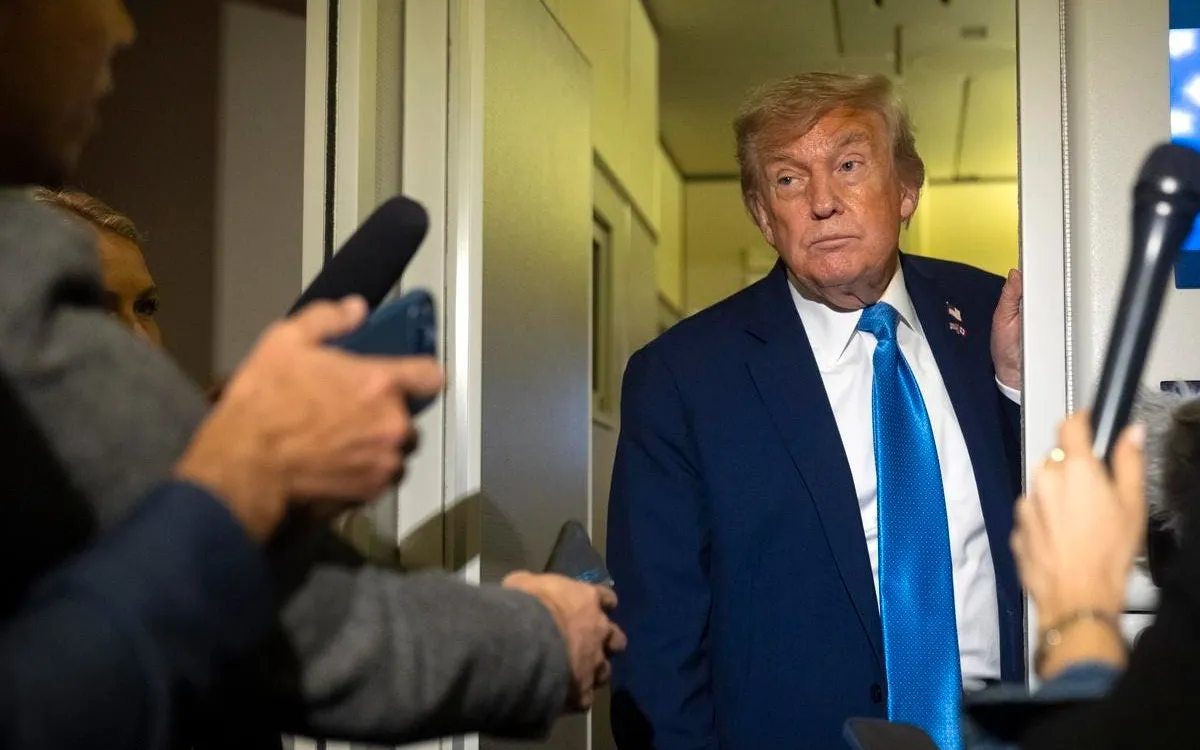
In a significant escalation of rhetoric, Iran’s Supreme Leader Ayatollah Ali Khamenei issued a stark warning to Israel via social media early Wednesday, declaring that “the battle begins.” This warning came just hours after former President Donald Trump threatened Khamenei directly, demanding an “UNCONDITIONAL SURRENDER.” The exchange has intensified speculation regarding potential U.S. military involvement in the ongoing Israel-Iran conflict.
In an earlier post, Trump asserted that the United States possesses “complete and total control of the skies over Iran.” He emphasized that while Iran has invested in defensive technology, it pales in comparison to American-made military equipment, stating, “Nobody does it better than the good ol’ USA.” In a follow-up post, Trump reiterated his demand for an “UNCONDITIONAL SURRENDER” from Iran, further escalating his combative rhetoric.
Additionally, Trump has warned Iran against any aggression towards U.S. personnel or assets, threatening severe repercussions: “If that happens, we’ll come down so hard, it’d be gloves off...I think they know not to touch our troops.”
On Monday, while flying back to the U.S. from a summit in Canada, Trump expressed his desire to see an end to Iran’s nuclear ambitions, stating he was “not too much in the mood to negotiate now.” He criticized French President Emmanuel Macron for suggesting that Trump was leaving the G7 summit to negotiate a ceasefire between Israel and Iran. Trump dismissed Macron’s comments, insisting they had “nothing to do with a Ceasefire” and hinted at “something much bigger” at play.
Earlier on Monday evening, Trump issued a stark warning regarding the potential for military conflict, stating, “Simply stated, IRAN CAN NOT HAVE A NUCLEAR WEAPON…Everyone should immediately evacuate Tehran!” He attributed the escalating situation to Iran’s refusal to sign the agreement he previously proposed, lamenting the “waste of human life.” This warning coincided with Israel's military issuing evacuation orders that impacted approximately 330,000 residents in Tehran, as they conducted strikes in parts of the city, including the central compound of Iran’s state broadcaster.
Trump’s early exit from the G7 summit was officially attributed to the ongoing turmoil in the Middle East. According to White House Press Secretary Karoline Leavitt, Trump was returning to attend to “many important matters.” Reports indicated that Trump had requested his national security team to convene in the Situation Room upon his return to Washington.
A U.S. official revealed that Trump was initially reluctant to sign a draft statement from G7 leaders, which called for de-escalation of the Israel-Iran conflict. After negotiating changes to the initial language, Trump agreed to the final statement, which reaffirmed the leaders' commitment to peace and stability in the Middle East. The statement also underscored Israel's right to defend itself and labeled Iran as the “principal source of regional instability and terror,” emphasizing that “Iran can never have a nuclear weapon.”
In response to the escalating tensions, Iranian Foreign Minister Abbas Araghchi expressed openness to resuming talks with the U.S. if Israel halts its military actions against Iran. He stated, “If President Trump is genuine about diplomacy and interested in stopping this war, next steps are consequential.” Araghchi criticized Israeli Prime Minister Benjamin Netanyahu, labeling him a “war criminal,” and suggested that a simple phone call from Washington could halt Israel’s aggression, potentially paving the way for renewed diplomacy.
For insights on the political ramifications of these developments, see Lawmakers Make Bipartisan Push To Restrict Trump From Going To War With Iran and Iranian Missiles Cause ‘Minor Damage’ To US Embassy In Tel Aviv—Israel Targets Elite Quds Force HQ.